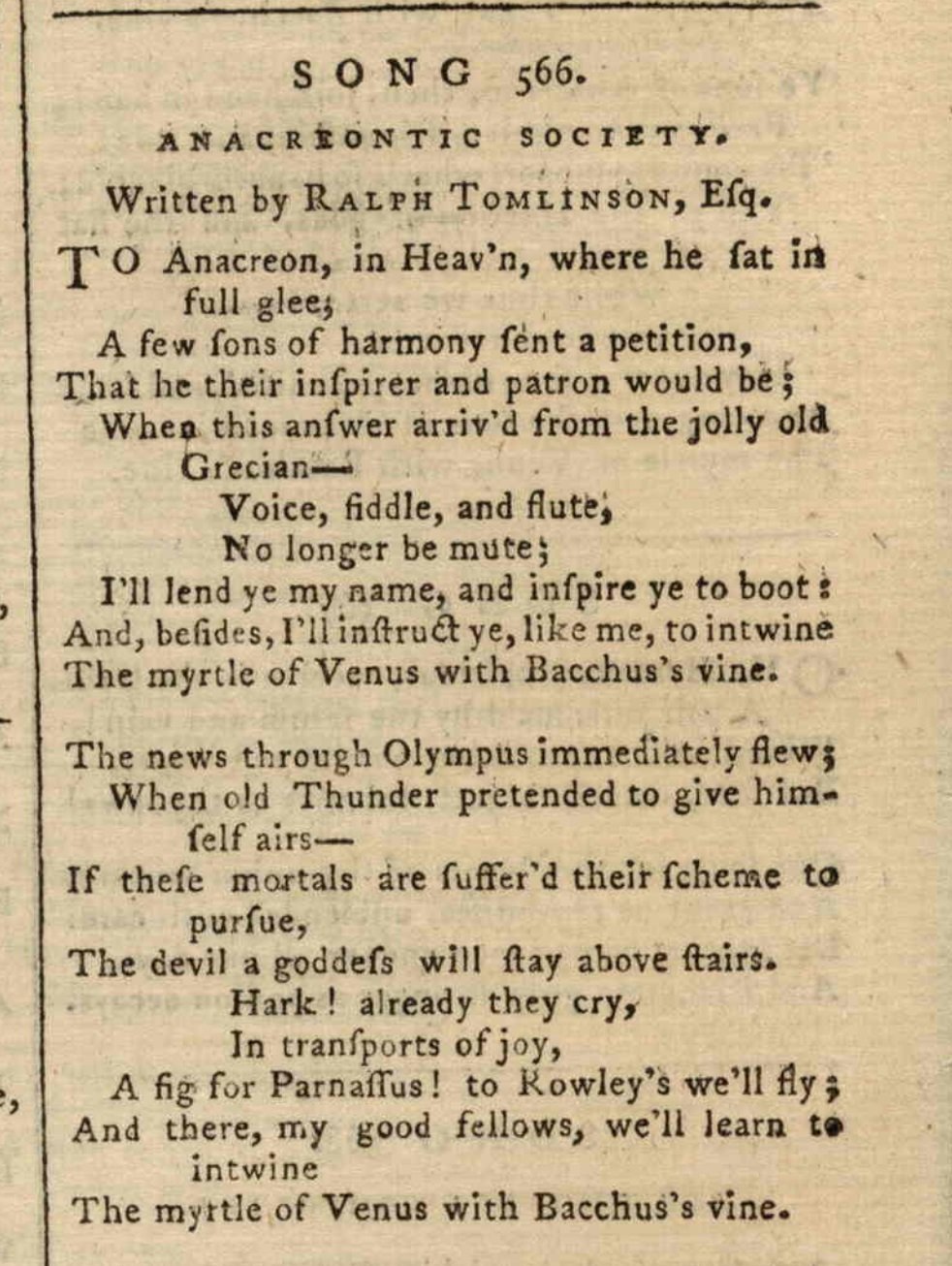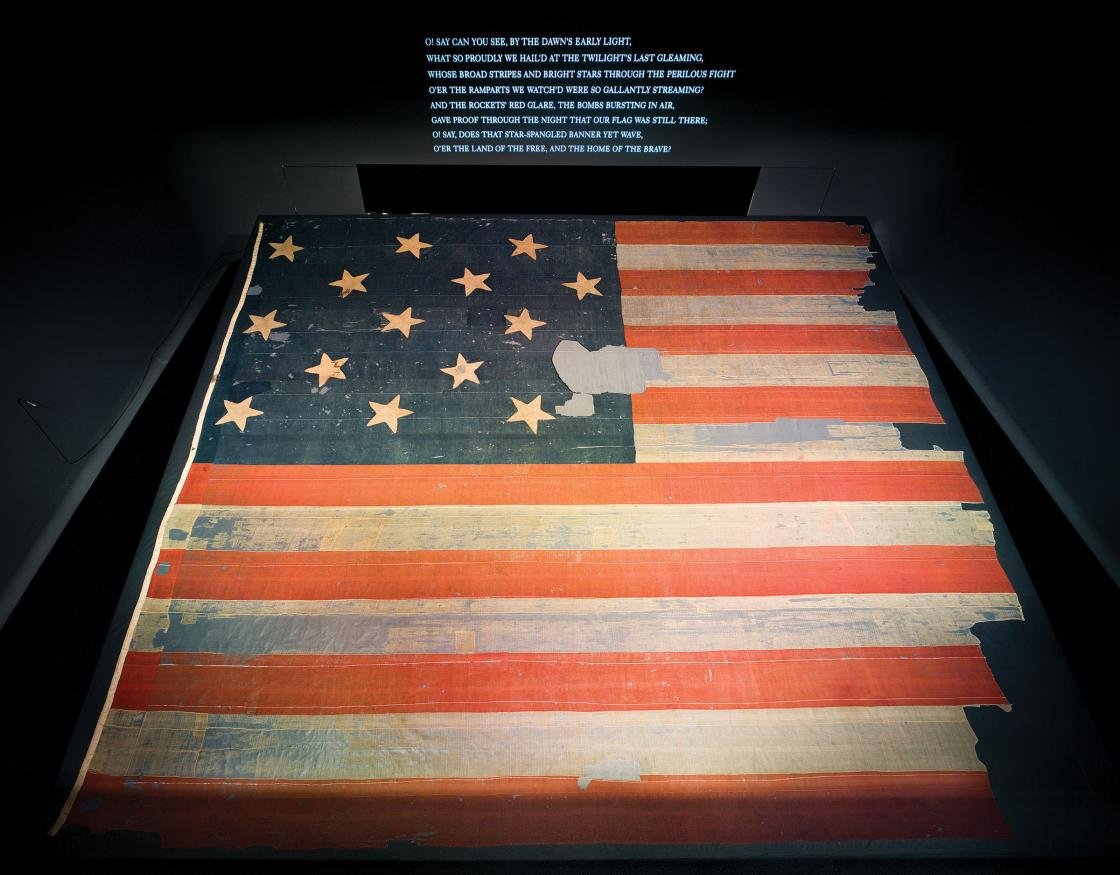To Anacreon in Heaven / Defence of Fort M'Henry
September marks the anniversary of one of the most famous and recognizable songs. It dates back to the 18th century British gentlemen’s club known as the Anacreontic Society. The club was dedicated to the ancient Greek poet Anacreon, who was renowned for his drinking songs and odes to love.
Its theme song, ‘To Anacreon in Heaven,’ includes several verses. Here is the first:
To Anacreon in Heav'n, where he sat in full Glee,
A few Sons of Harmony sent a Petition,
That he their Inspirer and Patron would be;
When this answer arriv'd from the Jolly Old Grecian
"Voice, Fiddle, and Flute,
"no longer be mute,
"I'll lend you my Name and inspire you to boot,
"And, besides I'll instruct you, like me, to intwine
"The Myrtle of Venus with Bacchus's Vine."
A member of the Society composed the music. The members sang the tune, after much consumption of alcoholic beverages. The song remained popular into the 19th century.
Here is a short rendition of the song – I think you’ll recognize the tune - click here.
Barbary Pirates
From 1801 to 1805, the United States fought a war against North African pirates disputing American shipping. To honor the returning military, a lawyer named Francis Scott Key composed a poem called "When the Warrior Returns." Click here to view the poem.
He set the poem to music – Once again, I think you’ll recognize the tune - click here.
War of 1812
The United States tried to remain independent of the Napoleonic Wars between England and France which started in 1803. However, England seized American merchant vessels to restrict trade with France and took American crews to man their warships. In response, the United States declared war on Britain in June of 1812. Following Napoleon’s disastrous invasion of Russia, he was forced to abdicate in 1814 (note – he returned in 1815 to his final defeat at the Battle of Waterloo). England was now free to concentrate its efforts against the United States.
Burning of Washington DC / Attack on Baltimore
The British invaded Maryland with a combined army and naval force. They burned Washington, DC after defeating the American defenders. Their soldiers then moved to attack Baltimore in conjunction with the British Navy. The Navy attempted to destroy Fort McHenry, which defended Baltimore’s harbor. They bombarded the fort for 25 hours, but the fort held strong and the English retreated.
Francis Scott Key
The American lawyer was on a British warship during the bombardment of the fort. He was trying to negotiate the release of some prisoners. When he saw that the fort had survived, he was inspired to write a poem, ‘Defence of Fort M'Henry’
The poem has four stanzas, although only the first is known today. Click here to view all four verses.
The National Anthem
It took over one hundred years for the song to become the national anthem. During the 1800s, it was a popular patriotic song. In 1889 the U.S. Navy adopted the song. In 1916, during World War I, President Wilson ordered the song to be played on military occasions.
The 1918 World Series was played in September after a shortened season – the season was ended early due to World War I. During the seventh inning stretch of game one, the Navy Band decided to play the song. Both the players and fans stood, saluted the flag and the fans applauded loudly. Thereafter, the song was played on holidays.
In 1930, the Veterans of Foreign Wars started a petition to recognize the Star Spangled Banner as the National Anthem. Congress considered the bill. The testimony included singing to prove that a typical person could reach all its notes. The bill passed and on March 4, 1831 became the official anthem.
During World War II, performance at ball games was moved from the seventh inning to the beginning of the game.
Famous Performances
There have been some famous performances over the years (click on the name to view):
Renee Fleming - first Opera Singer to Perform at the Super Bowl
But my favorite comes from Merry Olde England. After 9/11, Queen Elizabeth broke an ancient tradition by allowing a foreign anthem to be played at the changing of the guard – have tissues handy.


